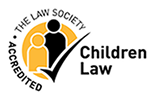The problems that may be encountered and why you should use your solicitor
The trend over the past few years has been increasingly to move everything online and Wills and probate applications are no exception. With the ability to do things online comes the temptation for people to try and do things themselves and this article aims at highlighting the problems that can be encountered and why the role of your trusted advisor, your solicitor, is so important.
Wills
Buying a DIY Will kit or even doing it online can seem appealing but it is very often a false economy and can result in a document that does not do what you intended it to.
An experienced solicitor will take care when speaking to you to ensure that your wishes are reflected in your Will and that your Will will work as you intend it to. In addition to this they will also be able to identify if there are any issues that could arise, for example a liability to inheritance tax. They may be able to advise you on how to reduce the impact of inheritance tax and make sure the Will is drafted in a tax efficient manner, making sure that exemptions, which many people are not aware of, are able to be claimed on death and that inheritance tax reliefs are not lost because of poor or wrong drafting.
If a Will has not been properly drafted the result may be that not all of your estate (what you own) is covered. In this case a “partial intestacy” has occurred and the rules of intestacy – the rules that apply if someone dies without a Will – will apply and could result in relatives you did not wish to leave anything to inheriting some or all of your estate.
Another major area where DIY Wills can fall down is on their execution. This means their signing. Wills have to be signed in a very specific way and if they aren’t they will be invalid. Using an experienced solicitor will avoid your Will from failing for this reason.
Finally, in this country we have testamentary freedom, which allows an individual to leave their estate however they wish. However the Inheritance (Provision for Family and Dependants) Act 1975 allows certain categories of people to bring a claim against a deceased person’s estate. Such claims are on the increase and there has been a lot of media coverage in recent years where people have gone to Court to argue, for example, that they were unfairly left out of someone’s Will. A solicitor will speak to you regarding your family situation and your wishes. If it appears that there may be someone not being provided for, who would be able to try and make a claim in the future, your solicitor can identify this and advise you on steps that can be taken to reduce the chances of any claim succeeding.
Probate
When someone dies, whether they leave a Will or not, their estate will need to be dealt with. We call this the administration of the estate. In an estate where there wasn’t a Will, administrators will need to be appointed and this can be a complicated process which a solicitor will be able to guide you through, enabling the Grant of Letters of Administration to be applied for.
Where there is a Will, the executors will act. In both instances where, if you distribute an estate without properly taking into account the terms of the Will as well as the rules governing the different types of gifts and trusts, you could find yourself subject to a claim for breach of your duty.
Another reason we as a firm are instructed by executors to act in the administration of their loved one’s estate is time. The executors will often lead busy lives and the additional work involved in collating all the information required to apply for the Grant of Probate can be too much.
Time aside though, if the executors use a solicitor then you can be assured that care will be taken to ensure that exemptions and reliefs are applied before the payment of any inheritance tax. If not claimed, getting it back will be very difficult.
Inheritance tax is not the only tax to consider when administering an estate. There may be income tax and/or capital gains tax to pay and penalties can be incurred for incorrect or late payment of them. A professional adviser can also look at the bigger picture and how any inheritances may impact on the recipients own tax position and advise accordingly to minimise this if appropriate.
In short, using solicitors should take the stress out of the process and ensure that all steps are correctly followed and that only the required amount of inheritance tax is paid, not more because of lack of knowledge of what needs to be done and what is available.
Please contact me on [email protected] or 01832 273506 if you would like to discuss any of the issues raised above and I or another member of our Legal 500 ranked private client team, will be happy to help you.
Subscribe for Updates













